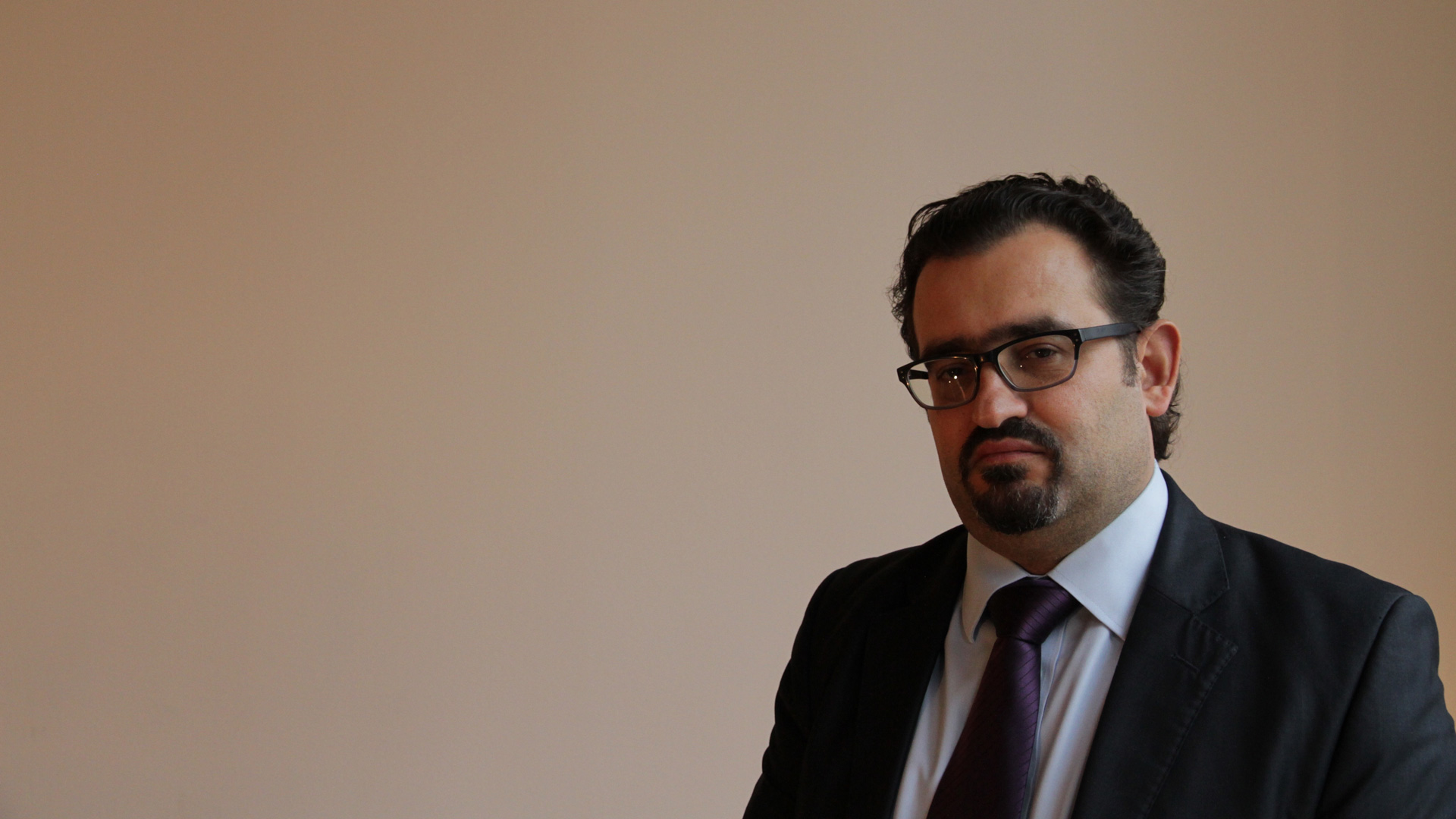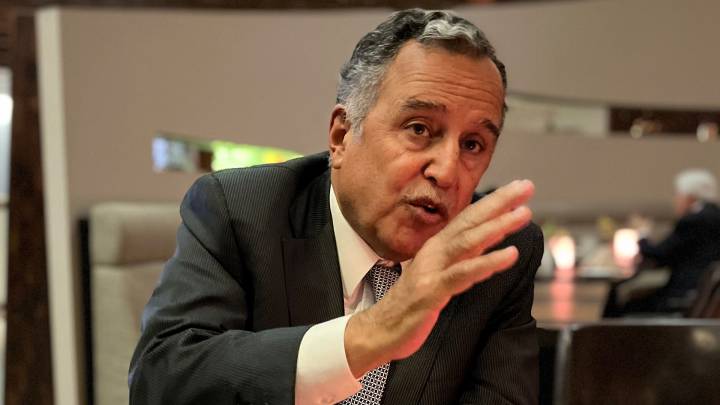Engaging in dialogue is a precondition to any path to overcome the stalemate in the Syria file, argues constitutional law expert Naseef Naeem.
The political observer of any type of event related to political decisions may hope that the politician will make a decision that goes beyond the limits of the usual and expected. The element of surprise in politics is no less pleasant than the unexpected turns of a rollercoaster in an amusement park, in which the laws of gravity can momentarily lose their effect. But, unfortunately, this type of decision-making remains an exception in the world of contemporary politics, where predicting the political direction has to some extent become a mathematical matter that depends on interpreting what politicians are thinking out loud on social media.
Thus, the decision of the European Union to cancel the scheduled meeting between the European Union and the Arab League, which is, in practice, a German decision, was an expected outcome. From a formal point of view, Europe in general and Germany in particular, pulled out of the political arena of the Syrian crisis early. When they announced that the Syrian regime had lost its legitimacy, withdrew their embassies from Damascus, and declared that in their view the Syrian foreign opposition was the legitimate and sole representative of the Syrian people, they lost any means of political influence on the parties of the conflict and their positions.
However, from the beginning, this European position was not unified, as some European countries maintained their political and security relations with Damascus, and others re-opened embassies in Damascus or maintained their diplomatic representation in one way or another. In fact, even the European Union has an ambassador to Syria who resides in Beirut and frequently travels from there to Damascus.
The Arab-Syrian relationship did not go beyond the limits of certain formalities
However, these different positions on the part of some European countries did not deter Germany from adhering to their “Three No’s” policy which —according to its official positions— are the No’s of the European Union: No to normalization with the Assad regime, no to lifting sanctions, and no to reconstruction without taking serious steps towards a political solution. Notably, these “Three No’s” have with time come to represent a general political orthodoxy, or perhaps a specific political theology, that characterizes the German and European positions, despite the differences between them. The extreme confusion in the European position, despite its diversity, is perhaps also caused by the Gulf-Syrian rapprochement, which has become an Arab-Syrian rapprochement, that has moved to the institutional stage by returning Syria to the Arab League.
What is interesting in this regard is that the Arab-Syrian relationship did not go beyond the limits of certain formalities, which are related to the Syrian officials sitting down with Arab officials, opening channels for discussion, and exchanging views with them. However, this arouses the ire of the European Union in general and Germany in particular. Neither the EU nor the member states waited to learn about the agenda of the Syrian-Arab rapprochement from an objective point of view. That is, they did not wait for an answer to the most important question that revolves around the practical issues that would follow this rapprochement, which is resolving the twelve-and-a-half-year-old Syrian dilemma.
Accordingly, it must be said that by refusing to sit down for talks with the foreign ministers of the Arab League countries, in the presence of the Syrian foreign minister, the European countries missed the opportunity to place the Arab side, including the Syrian side, before its substantive responsibilities. The first of these responsibilities that could have been discussed is to define the practical issues on which the Arab states should work with Syria, as well as the mechanisms that they need to apply. The message that the Europeans conveyed through their political No’s was that these No’s have priority over any attempt to recognize an existing reality and to find a practical solution to the problem.
Reaching a mutually acceptable political solution is impossible in practice under the current circumstances
What is striking here is that the history of the Syrian crisis has proven, in one way or another, that reaching a mutually acceptable political solution is impossible in practice under the current circumstances. This means that there is nothing left but technical work on specific practical issues as a path towards a political solution, since practical issues are easy to identify and to put on the negotiating table.
This is what the Syrian civil society has done in many initiatives, especially the Initiative of the Council of the Syrian Charter, which identifies eleven items that must be adhered to and put into practice so that a possible solution to the Syrian crisis can be developed. In his article “A Common Starting Point for Europe and the Arab World in Syria,” which was recently translated into Arabic and published by zenith’s editor-in-chief Daniel Gerlach, called on the Europeans and Arabs to agree on these items as a new basis for future joint actions on the Syrian file.
Accordingly, the fundamental questions in the next stage revolve around the possibility of witnessing Arab action on the Syrian issue based on technical realism that could pave the way for a political solution. Or will the European ideology, and the German ideology in particular – which are based on the necessity of a political solution or the start of a solution project as the basis for any movement in the Syrian issue – forcefully re-impose itself? Or will the fragmentation of European positions on Syria ultimately reinforce the absence of a unified policy towards the crisis and strengthen the individualism of the European states’ decisions in this regard?
What one can hope for in this regard is that the European Union in general and Germany in particular will not leave the political arena again, and that they will be persuaded that political pragmatism and dealing with reality in a technical way represent the main pillars of what is possible in the Syrian crisis.
Dr. Naseef Naeem is a scholar in constitutional law. He is the research director of ZENITH COUNCIL and fellow at the Candid Foundation. The opinions expressed in this article reflect only the author's views.




